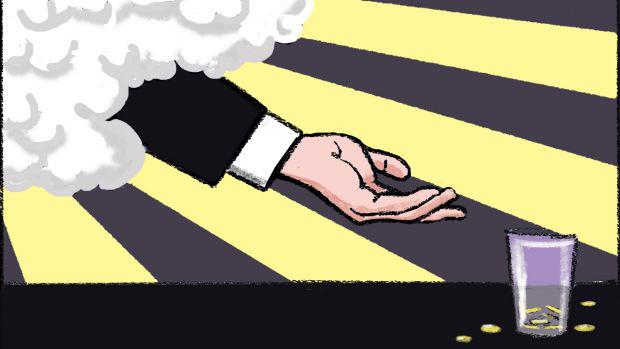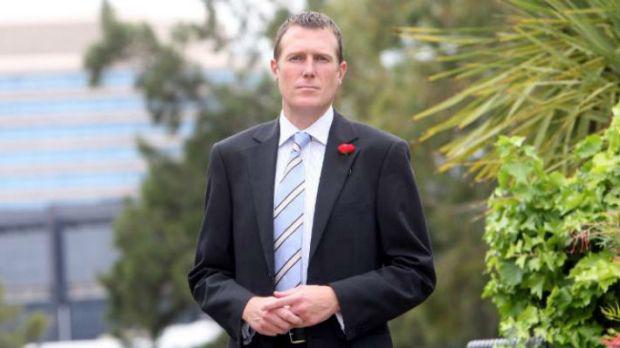|
Too many religious institutions consider themselves beyond reach
By Wendy Squires
As someone who has followed the child sex abuse royal commission with horror and fury, my desire (make that demand) has been consistent – make them pay! My greatest fear was that those innocents, whose dignity, self-esteem and human rights were ripped away by those they trusted, would be abused all over again in their quest for justice. The retelling of their stories would be mere fodder for a news cycle, and then once the hearings concluded, we would all tut tut and go our merry way, grateful that "times have changed" and the culpable institutions had "learnt a lesson". But justice has arrived, for living victims at least. Last Friday, the Social Services Minister, Christian Porter, announced a national compensation scheme with payments to victims of up to $150,000. One entity would process claims, with federal backing, thus cutting red tape. I was jubilant. But I kept reading and my anger returned. Not only is the maximum amount $50,000 lower than the commission's suggested cap, but a clause allows the (mostly religious) institutions and the states to opt out of contributing. Talk about a kiss followed by a kick; this is immoral. Allowing the wealthy religious institutions that committed heinous crimes against children to have an option to pay or not is obscene. Care Leavers Australia Network's chief executive, Leonie Sheedy, says compensation from the states and institutions responsible should be mandatory, given that many of the religious institutions have a poor track record of supporting people who were abused. She also raises a very interesting argument: any charity or religious organisation that refuses to contribute to the scheme should lose their tax exempt status. Hallelujah! The issue of tax exemption has for too long been unquestioned, and the government won't be keen to revisit the issue, given the party is run by a handful of right-wing Christian fanatics. But it's time this ridiculous indemnity was debated. Under Australian law, religious organisations are deemed "charitable" and thus exempt from tax, which adds up to an estimated $30billion (the Catholic Church accounts for about half) annually. To be recognised as charitable, the institution should provide: the relief of poverty, the advancement of education, the advancement of religion, and "other purposes beneficial to the community". However, in 2014, a Charities Act was introduced expanding the statutory definitions of "charity" and "charitable purpose" to recognise other attributes including: advancing health, education, social or public welfare, religion, culture, reconciliation, mutual respect and tolerance; promoting or protecting human rights, advancing the security or safety of Australia or the public, preventing or relieving the suffering of animals and advancing the natural environment. All of these are supposed to be "for the public benefit" and, as such, are accepted as charitable and exempt from certain taxes. And fair enough. In most cases, their public benefit is duly noted. Yet religious institutions such as the Catholic Church are also campaigning against same sex marriage, excluding women in their hierarchies, teaching that homosexuality is immoral, backing campaigns against legal abortion rights, perpetuating the nonsense that is creationism, scaring children with threats of hell and damnation, preaching virgin births, sea partings and resurrection. Can this work be deemed "charitable" and of "public benefit"? Where the money goes to hospitals, refuges and the like, no tax should be required. But the income from massive property portfolios and related investments, really? And consider Scientology, created by science fiction author L.Ron Hubbard, which decrees that 75 million years ago, a dictator called Xenu brought billions of his people to Earth in spacecraft, dropped them in volcanoes and then blew them up with hydrogen-like bombs. The spirits of these aliens, called thetans, inhabit humans and can only be eradicated by spending thousands of dollars to become "clear". This institution, too, is tax exempt. A recent documentary, Going Clear, reported that it is worth $US1.75 billion ($2.2 billion) globally, and takes in about $US200 million a year. Meanwhile, Hillsong Church pulled in an estimated $100 million last year, all tax exempt because it is a religious institution. Similarly, the huge Sanitarium Health and Wellbeing Company, wholly owned by the Seventh Day Adventist Church, doesn't pay tax on the $205 million earned last year alone. Are these institutions really "for the public benefit", and thus deserving of tax indemnity? The royal commission has provided an excellent opportunity to look closely at just what the "charitable" and "public interest" output of religious institutions really covers. Too many of them have considered themselves untouchable in the past. It is time to make them pay.
|
.
Any original material on these pages is copyright © BishopAccountability.org 2004. Reproduce freely with attribution.

